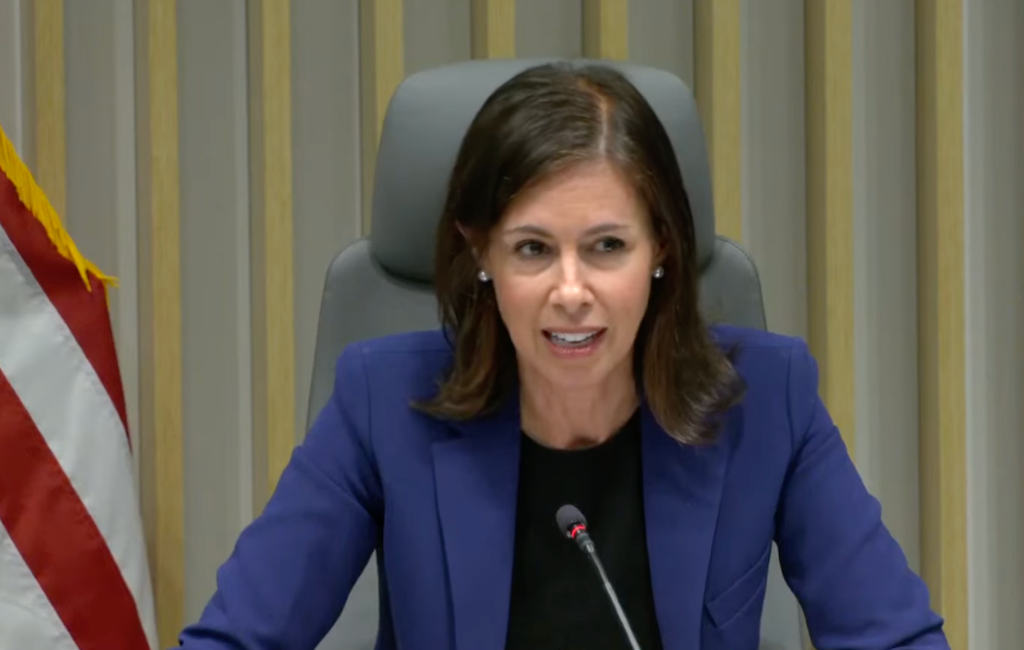FCC Approves E-Rate for Wi-Fi Hotspots
Like another E-Rate expansion last year, the order passed along party lines.
Jake Neenan

WASHINGTON, July 18, 2024 – The Federal Communications Commission voted on Thursday to expand its E-Rate program, allowing schools and libraries to use subsidy funds on Wi-Fi hotspots for off-campus use.
E-Rate is one of four FCC subsidies housed in its $8-billion Universal Service Fund, which is funded by fees on voice providers. The program spends about $2 billion annually to support broadband and other telecom services for schools and libraries.
“I believe every library and every school library in this country should be able to loan out Wi-Fi hotspots to help keep their patrons and kids connected,” FCC Chairwoman Jessica Rosenworcel said. “It is 2024 in the United States. This should be our baseline.”
The Commissioners voted 3-2, with Republicans Brendan Carr and Nathan Simington dissenting. The GOP commissioners have consistently opposed expanding the E-Rate program. They also dissented from an item last fall that allowed schools to use funds for Wi-Fi on school buses.
Along with some Republican lawmakers on Capitol Hill, Carr and Simington have argued that the Communications Act allows for subsidizing connectivity only within the physical bounds of classrooms and libraries. Carr cited on Thursday a brief filed by senators, including Sen. Ted Cruz, R-Texas, supporting on similar grounds a lawsuit challenging the October school bus order. Plaintiffs in that case claim their phone bills could potentially increase to cover the cost of the new USF expenditures.
House Energy and Commerce Committee Chair Cathy McMorris Rodgers, R-Wash., issued a statement saying the decision “violates federal law and will result in taxpayer dollars subsidizing children’s unsupervised internet access” and accused the agency of “doubling down to advance Chairwoman Rosenworcel’s pet projects.”
Carr and Simington also argued the order would not survive in the wake of the Supreme Court’s decision in Loper Bright Enterprises v. Raimondo, which overruled the legal precedent of deferring to federal agencies' reasonable interpretation of the law.
“After Loper Bright, the FCC can no longer point to a merely permissible construction of a statute to prevail in court. Instead, courts will now determine the best reading of the relevant law,” Carr said. He told reporters after the meeting that he likely would not have supported the item even in the absence of Loper Bright.
The public draft of the FCC’s order cited Communications Act language requiring USF services to schools and libraries for “educational purposes,” and argued that off-campus hotspots met that educational purpose requirement.
“To the extent that classrooms get a mention in the law, the statute makes clear it is descriptive and not restrictive,” Rosenworcel said. “We have also developed a way to do this within the existing E-Rate budget. That means this modernization does not require new Universal Service funds, nor does it come at the cost of the support E-Rate provides to connectivity in schools and libraries.”
The order takes up a formula based on a library’s size or a school’s number of students to find the institution’s budget for hotspots.
Also adopted was a further notice of proposal rulemaking that takes comment on further tweaks to E-Rate, including how to make sure funding is efficiently spent and on potential user access restrictions for funded hotspots. Commissioner Geoffrey Starks, a Democrat, noted Thursday that the draft was updated to include questions about cybersecurity requirements.
Some broadband and telecom providers have opposed the expansion of E-Rate, also arguing the FCC lacks authority to fund off-campus devices or connectivity, while the larger wireless carriers and their trade groups have supported it. School districts and libraries, as well as consumer advocacy groups like Public Knowledge and New America’s Open Technology Institute, have written to the agency in support of the move.











Member discussion